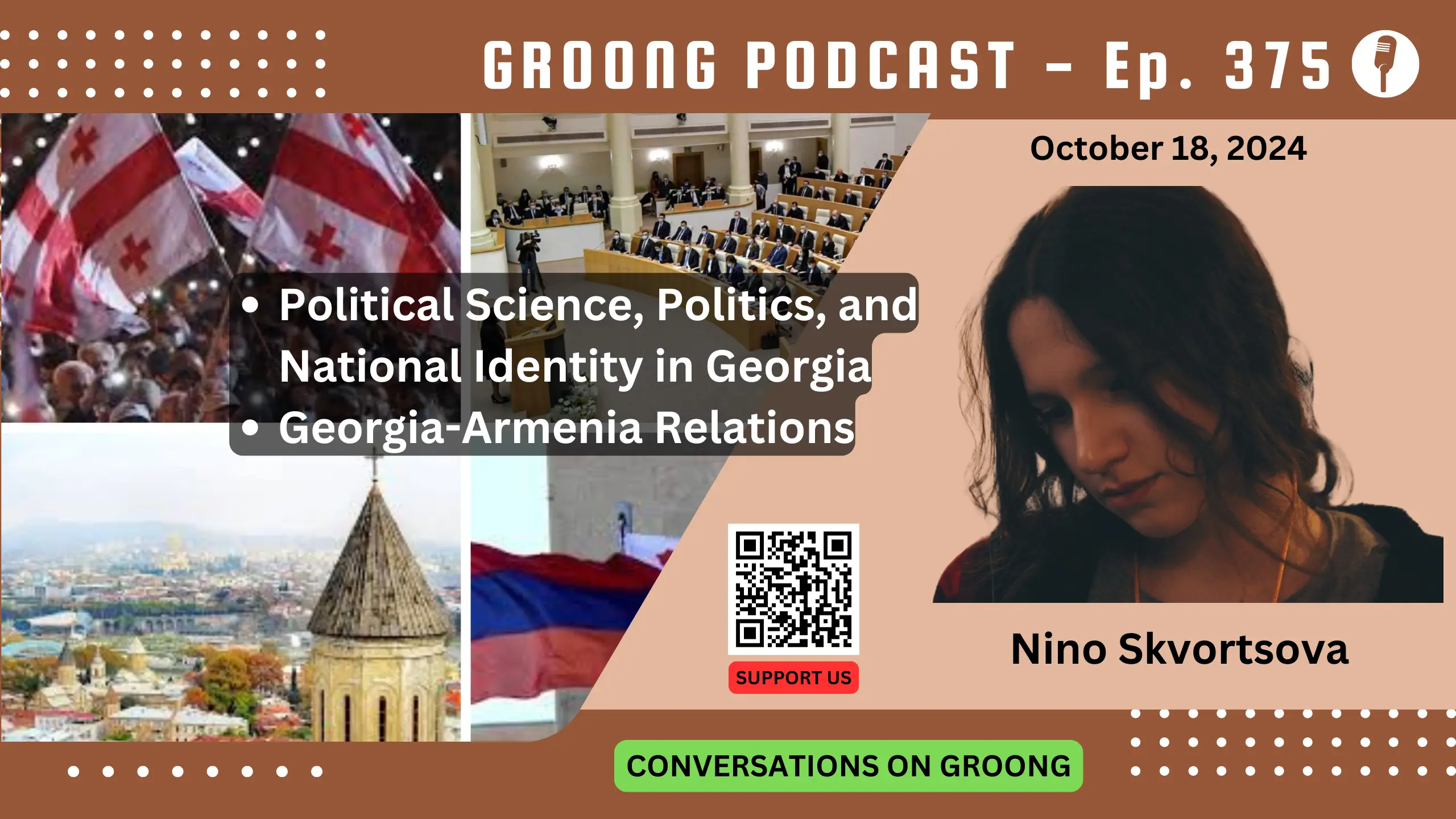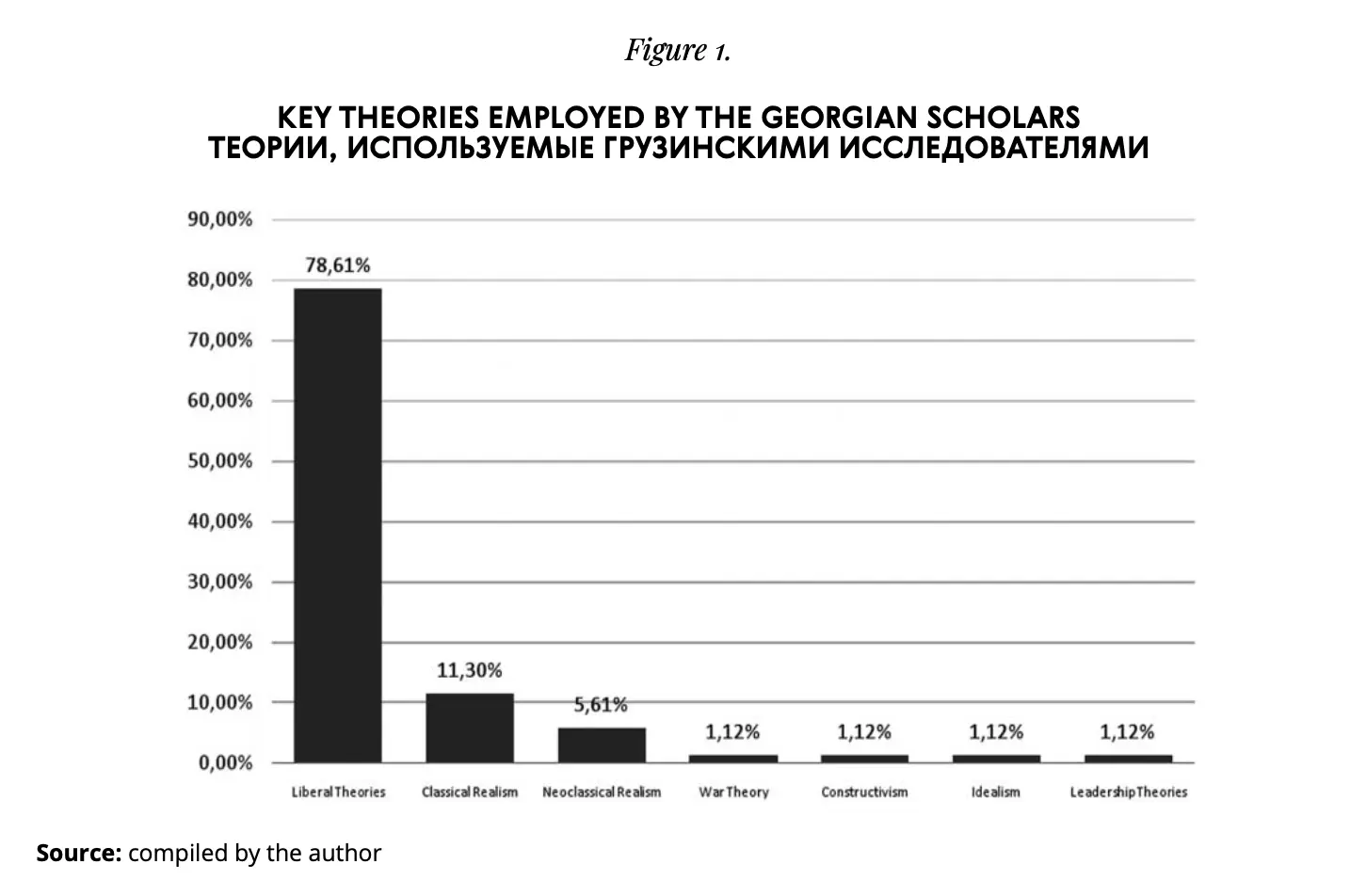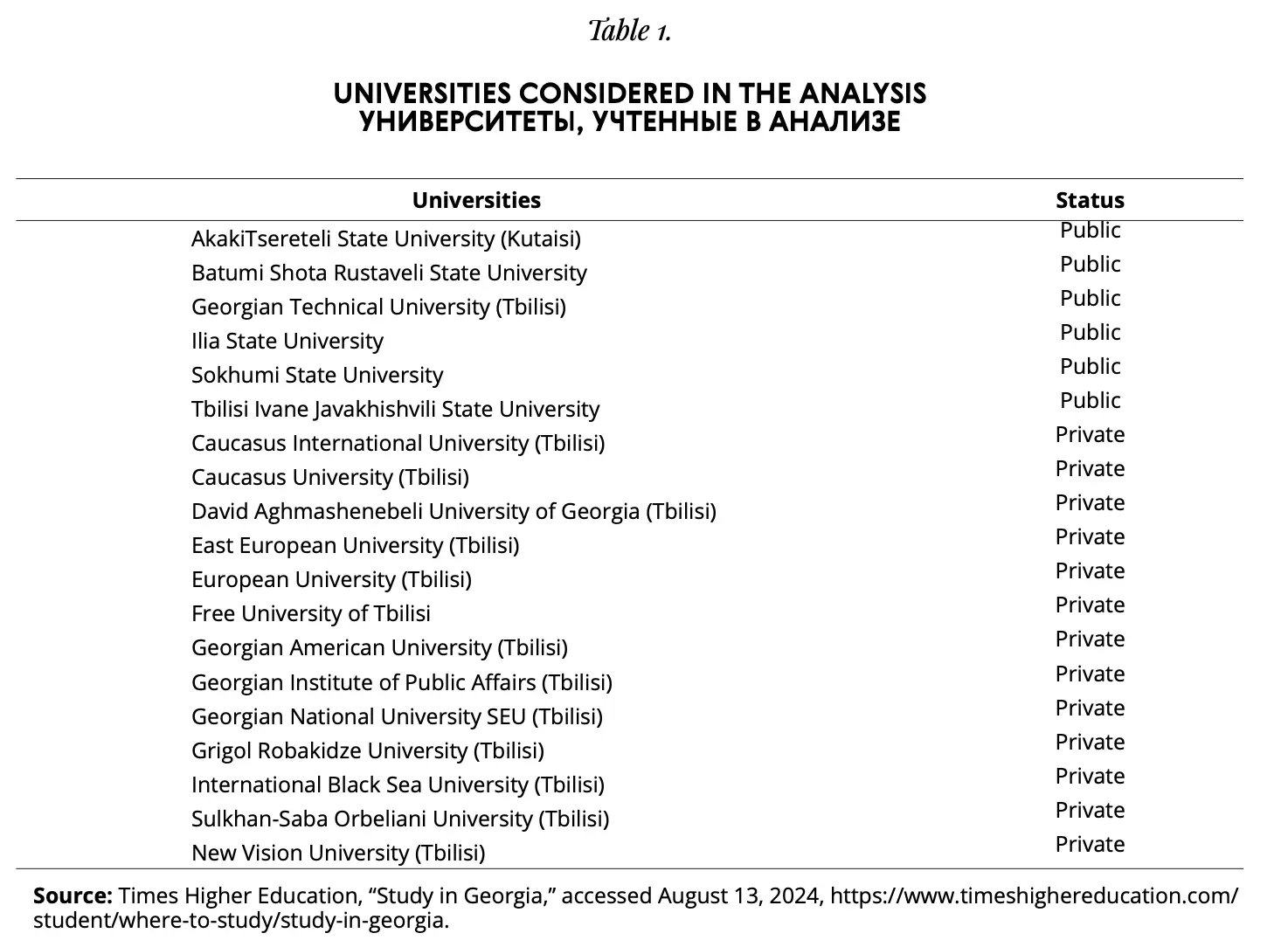
Groong Links:
Guest:
Topics:
- Political Science in Georgia
- Elections and Potential Political Pivot
- Influences on Georgian Identity
- Georgia-Armenia Relations
Episode 375 | Recorded: October 15, 2024
Show Notes
Political Science and Politics in Georgia
Since this is your first time with us, would you tell us about yourself, and the interests that have led you to explore political science, and what drew you to your specific field of research?
Questions:
- How did your academic journey, from studying at RUDN in Moscow to your work at Caucasus International University in Georgia, shape your perspectives on the region’s political landscape?
- Can you share what inspired you to focus specifically on the intersection of media studies and regime transformation in the South Caucasus? What are the most pressing challenges in this area today?
Political Science in Georgia
In your recent paper “Political Science in Georgia: Epistemology and Determinants”, which you co-authored with Dr. Archil Sikharulidze, a guest and friend of our podcast, you discuss the state of Political Science as a field of study in Georgia. You note the heavy influence of Western theories, such as liberalism, neoliberalism, institutional liberalism, etc. and the role of external actors like the US and the EU, in shaping academia in post-Soviet Georgia, where the absence of a deeply rooted field of study led to an emphasis on democracy promotion and civic education, rather than a critical search for alternative approaches to political studies. You also argue that the fact that Georgia scholars in this field relied heavily on Western funding may have influenced the situation on the ground.
Questions:
- Can you provide more details about your paper?
- How has political science in Georgia developed, particularly in relation to Western influence? Since you studied Russian soft power, is there Russian influence as well?
In your paper, you found that 78.6% of the papers relied on liberal theories.

Questions:
- Let’s talk about your methodology, do you believe that your access to the published papers was sufficient and representative of everything that was published?
The study lists a large number of universities that were considered in your study.

Questions:
- Did all of these universities contribute the same amount of papers? Is there a difference between public and private universities?
In your paper, you talk about the determinants of the current epistemological approaches as: “the higher education system reform conducted in the aftermath of the Rose Revolution, Civic Education as the foundation of the higher education system, and, finally, the overwhelming influence of Western financial assistance.”
Questions:
- How does financial dependency on Western grants and scholarships impact academic freedom and the diversity of research topics in Georgia?
- Is this an issue on the Georgian government’s radar as a problem to address?
- How does the Western influence in Georgian academia impact the national identity of ordinary Georgians?
Politics and the Potential Pivot Away from the West
We recently had a conversation with your colleague Dr. Nikoloz Bitsadze (Ep. 370, on our Youtube page). The discussion centered on the potential shift in Georgia’s political landscape, including tensions around aligning with Western institutions such as the EU and NATO. In the coming elections in two weeks there is a real possibility that we’ll see Georgia shifting gears, or as the West likes to say, “pivoting away from the West”, or “turning Eastward”.
Questions:
- How significant is this potential pivot away from the West, and what are the main drivers behind this shift?
- How much of Georgia’s political direction is influenced by internal party politics versus external pressures from larger geopolitical players such as Russia or the EU?
- What role does public opinion play in this shift? Are there changing perceptions among the Georgian population about Western alliances, and how does the media influence these views?
- With the 2024 elections only two weeks away, how do you see these dynamics playing out? Could the election results signal a major shift in Georgia’s foreign policy?
Georgia-Armenia Relations
Modern relations between Georgia and Armenia are by and large cordial but generally not particularly warm. Theoretically our governments would have us believe that relations will be better now that there is a so-called “strategic partnership” that was signed at the start of 2024.
Questions:
- Why are relations between the two countries cordial but not warm?
- The two peoples have lived together for centuries, yet there is very little awareness, or political interaction between the two. So: why?
- What is needed for Armenians and Georgians, neighbors after all who don’t have a major history of animosity, to achieve solidarity and unity on issues of historic truth?
Wrap-up
That’s our show! We hope you found it useful. Please find us on Social Media and follow us everywhere you get your Armenian news.
Thanks to Laura Osborn for the music on our podcasts.
Guests

Nino Skvortsova
Nino Skvortsova is a scholar who researches media studies, and regime transformation in the South Caucasus. Currently she is a post-graduate, PhD candidate, researching Regime transformation of Georgia. She has MA in Theory and History of International Relations from RUDN, the Peoples’ Friendship University of Russia, and has also studied Social Sciences at the Caucasus International University in Tbilisi, Georgia.
Hosts

Hovik Manucharyan
Hovik Manucharyan is an information security engineer who moved from Seattle to Armenia in 2022. He co-founded the ANN/Groong podcast in 2020 and has been a contributor to Groong News since the late 1990s.
Disclaimer: The views expressed by Hovik Manucharyan on the ANN/Groong podcast are his own and do not necessarily reflect the opinions of his employer or any other organization.

Asbed Bedrossian
Asbed Bedrossian is an IT professional, and for years oversaw the central IT enterprise infrastructure and services at USC. His decades of experience spanned across IT strategy, enterprise architecture, infrastructure, cybersecurity, enterprise applications, data center operations, high performance computing, ITSM, ITPM, and more.
Asbed founded the Armenian News Network Groong circa 1989/1990, and co-founded the ANN/Groong podcast in 2020.